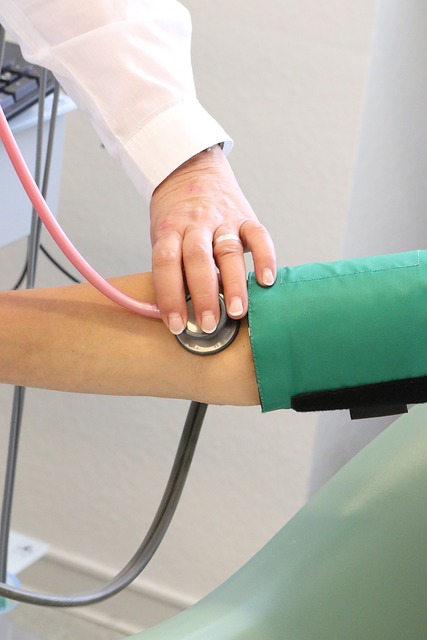[ez-toc]
The measurement of blood pressure is considered a cornerstone of medical assessment, a vital indicator of a person’s overall health. Yet, a recent study throws light on a previously overlooked aspect of this routine procedure: the influence of arm positioning on blood pressure readings. This finding is not only important for healthcare professionals who routinely evaluate patients but also for individuals who take their own blood pressure at home. The study found that the commonly used arm positions, such as resting the arm on the lap or leaving it dangling unsupported, can lead to a significant overestimation of blood pressure readings. This means that individuals could be inadvertently classified as having hypertension, a condition that can have serious consequences for their health.
The study, conducted by researchers at Johns Hopkins and published in the prestigious journal JAMA Internal Medicine, involved a crossover randomized trial, a rigorous methodology that ensures a high level of scientific validity. The study recruited 133 adults, spanning a diverse age range from 18 to 80. Participants underwent blood pressure measurements using three different arm positions: the recommended position of supporting the arm on a desk, the lap-rested position, and the unsupported arm dangling by the side.
The Impact of Arm Positioning on Blood Pressure Readings
The Gold Standard vs. Common Practices
The study’s findings revealed a consistent pattern: the lap-rested and unsupported arm positions consistently yielded higher blood pressure readings compared to the gold standard method of supporting the arm on a desk. The lap-rested arm position resulted in an average increase of 3.9 mm Hg in systolic blood pressure (the top number) and 4 mm Hg in diastolic blood pressure (the bottom number).
The unsupported arm position led to an even more substantial overestimation, with an average increase of 6.5 mm Hg in systolic blood pressure and 4.4 mm Hg in diastolic blood pressure. These findings have significant implications for both healthcare professionals and individuals who monitor their own blood pressure.
Implications for Healthcare Providers
Healthcare professionals, relying on these common practices for blood pressure measurement, could unknowingly misdiagnose patients with hypertension. Overdiagnosis of hypertension can lead to unnecessary treatment and the potential for adverse side effects associated with certain medications. In addition, the overdiagnosis of hypertension can create undue anxiety and stress for patients who may not actually be experiencing high blood pressure.
Implications for Home Blood Pressure Monitoring
The study highlights the need for increased awareness and caution among individuals who monitor their blood pressure at home. Home blood pressure monitors are becoming increasingly popular as a way for individuals to manage their health, and many rely on these devices for self-monitoring. However, the study’s findings underscore the importance of proper technique, including the correct arm position, to ensure accurate readings.
Understanding the Significance of Accurate Blood Pressure Measurement
Accurate blood pressure measurement is crucial for managing and preventing serious health conditions. Hypertension, a condition characterized by chronically high blood pressure, is a significant risk factor for heart disease and stroke, leading causes of death worldwide. High blood pressure can also be a marker for other serious health conditions, such as type 2 diabetes.
The overestimation of blood pressure readings due to improper arm positioning can have a detrimental impact on patient care. It can lead to unnecessary treatment, increased anxiety and stress for patients, and potentially delay the diagnosis of other underlying conditions.
We also Published
- Probability for Beginners (Lecture Class Notes Nov 2023) %%sep%% %%sitename%%
Probability for Beginners: Nov 2023 Lecture. Grasp the fundamentals of probability. Ideal for learners starting their probability journey. - Distinctions between Plants and Animals: A Comprehensive Analysis
Explore the distinctions between plants and animals with a comprehensive analysis highlighting their unique characteristics. - Additive Inverse of an Element: Understanding the Concept
Learn about the additive inverse of an element, how to find it, and its importance in mathematics.
Beyond Arm Positioning: Other Factors Influencing Blood Pressure Readings
The White Coat Effect
The study’s findings are not the first to highlight the influence of seemingly minor factors on blood pressure readings. One well-known phenomenon is the “white coat effect,” where individuals experience higher blood pressure readings in a clinical setting compared to their readings at home. This is often attributed to anxiety and stress associated with a medical visit. However, the white coat effect can also be a sign of an underlying health condition that requires further investigation.
Environmental Factors
Environmental factors can also influence blood pressure readings. A study published in the journal “Hypertension” found that a person’s blood pressure can be significantly affected by exposure to noise. The study participants who were exposed to loud traffic noise had significantly higher blood pressure readings than those in a quieter environment. This suggests that even subtle environmental factors can impact blood pressure, underscoring the need for controlled environments when taking blood pressure readings.
Medications and Caffeine
Medications and caffeine consumption can also influence blood pressure readings. Certain medications, such as decongestants, can cause a temporary increase in blood pressure. Similarly, caffeine can also temporarily raise blood pressure. Therefore, it’s important to inform your healthcare provider about any medications you are taking and to refrain from consuming caffeine before a blood pressure measurement.
The Importance of Accurate Blood Pressure Measurement: A Call to Action
The findings of the Johns Hopkins study serve as a crucial reminder of the importance of accurate blood pressure measurement for both healthcare professionals and individuals who monitor their blood pressure at home. Accurate measurement is essential for effective disease management and prevention.
For Healthcare Providers
Healthcare providers should be mindful of the potential influence of arm positioning on blood pressure readings. Take the time to ensure that the arm is supported on a desk, following the gold standard method for accurate measurement. This simple but critical step can significantly improve the accuracy of blood pressure readings and help avoid misdiagnosis and unnecessary treatment.
For Patients
Patients should advocate for proper measurement techniques when they are at a clinic. Be aware of the potential impact of arm position, environmental factors, and other factors that can affect blood pressure readings.
Empowering Patients with Knowledge
It’s important to empower patients with knowledge about blood pressure measurement. Patients who understand the importance of accurate measurement are more likely to advocate for their own health.
The study’s findings underscore the importance of continual learning and adapting practices in healthcare. Even seemingly minor factors, such as arm positioning, can have a significant impact on patient care.
It’s important to note that this research is just one piece of the puzzle when it comes to understanding blood pressure. There are many other factors that contribute to hypertension, and more research is needed to fully understand the complex interplay of these factors.
What are your thoughts on the impact of arm positioning on blood pressure readings? Have you ever had a blood pressure measurement that seemed inconsistent with your normal readings? Share your thoughts and experiences in the comments below.
RESOURCES
- 10 Factors That Can Affect Blood Pressure Readings
- The effect of change of position of the arm upon blood …
- Your arm position could change your blood pressure …
- Arm Position During Ambulatory Blood Pressure …
- Bad arm position drastically affects blood pressure readings
- How patient positioning during blood pressure …
- Should your arm be straight when taking blood pressure?
- Incorrect Arm Positions Overestimate Blood Pressure …
- 5 errors that are giving you incorrect blood pressure readings
- Your arm position could change your blood pressure …
- Effects of arm and body position when measuring blood …






0 Comments